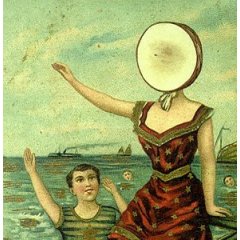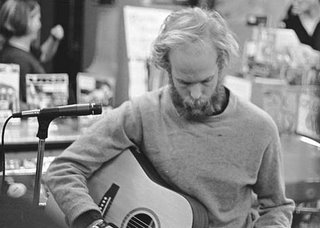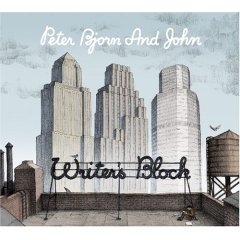 Pavement
PavementIt was inevitable. Sooner or later, I was going to have to get around to writing about my personal favorite band of all time. And, hot off last week's excellent
Wowee Zowee reissue, now seems as good a time as any.
As is usually the case with personal favorites, a major component of my love for Pavement is nostalgic. Their fantastic sophomore full-length
Crooked Rain, Crooked Rain was the first indie album I ever bought. I looked into it on the recommendation of Trey Ansastasio of Phish, of all people (in a magazine interview, not in person). But really, that fact traces my evolution from jam fan to indie kid pretty well.
Crooked Rain opened my eyes to a brave new world of music, and it remains one of my absolute favorites to this day - like, top three material, seriously.
From the messy opening crash of "Silent Kid," I knew I was in for something different, but what kept me coming back to the album was how goll-darn fun it is. It's as catchy as anything in the annals of the indie oeuvre, and it rocks with a loose abandon that is positively addicting. I spent several evenings of my post-high school, pre-college life (about three months) jumping around my room to "Unfair" - perhaps the earliest documented instance of me totally rocking out. When I read that "Stop Breathing" was “about tennis, in a way, like imagining tennis as an emotional battleground,” I realized that Stephen Malkmus' cryptic lyrics had some real thought behind them, and were not
just clever wordplay and oblique references.
And best of all, I soon discovered that Pavement had four other great albums, and plenty of brilliant non-LP material to boot!
Slanted and Enchanted, their first full-length, is the classic watershed album and shows them at their most gloriously stripped-down and lo-fi.
Their third album
Wowee Zowee (recently reissued with a mess of bonus tracks and extras) was their
White Album - a glorious mess of an LP that threw goofy genre-experiments and filler together with some of their all-time best A-side material. For a band whose shortcomings were always an essential part of their charm, this approach proved surprisingly effective, and
Wowee has become many fans' favorite Pavement disc. It's highlight is the elegant "Grounded," on which Malkmus lets his intuitive melodic sense leak into his guitar and offers some of his most engaging wordplay. In the first verse he sings, "And in the parking lot/Is the sedan he bought/He never, never complains when it's hot." The way Malkmus slurs the words "sedan-he-bought-he" makes it sound like he's saying "anybody" - just one example of him obscuring lyrical signifiers by playing with the listener's auditory perceptions.
The band's last two albums,
Brighten the Corners and
Terror Twilight have been rightfully designated "not quite as good as the first three" - they admittedly don't have quite the same adventurous spirit. But they are still brilliant works of intelligent indie rock, and only suffer slightly in comparison to the band's epochal masterpieces.
Perhaps their most underrated disc is
Westing (By Musket and Sextant), a collection of recordings by Malkmus and Spiral Stairs (other guitarist/vocalist Scott Kannberg) that predate
Slanted and Enchanted. This compilation finds Pavement at their roughest, rawest, and most unhinged, which is an absolute delight for fans. It not only shows their incredible potential, but also shows Pavement creating uncompromisingly great music on their own terms, even at the larval stage.
Luckily for fans, Pavement's label, Matador, is in the process of re-issuing all of their albums in extensive double-CD packages that collect b-sides, outtakes, radio sessions, and live recordings from each album's respective era. The breadth and depth of the material is staggering , and the incredible quality of the previously unreleased songs handily refutes the misconception that they were lazy slackers that just lucky. The fact that the best and most consistent band of the nineties was one that was notorious for almost never practicing is one of the great incongruencies of the decade. I mean, damn. That is
so indie.










